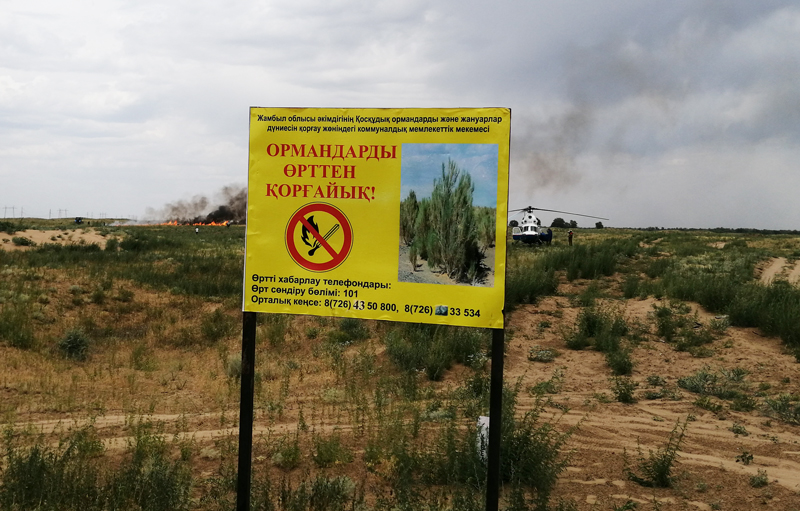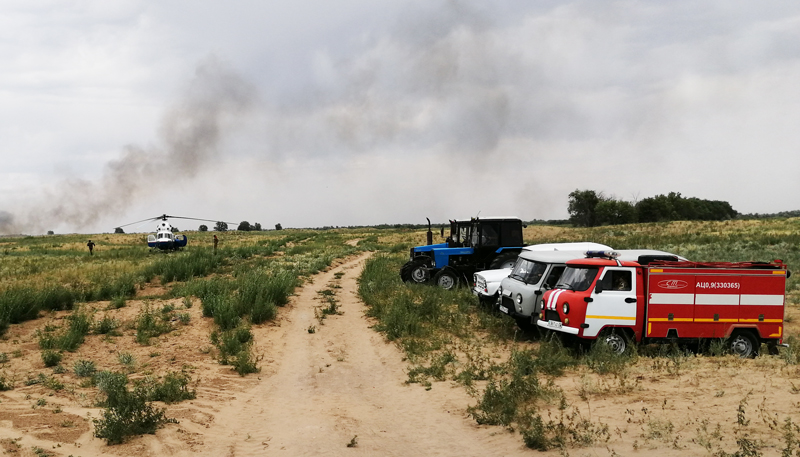President of Kazakhstan Kassym-Jomart Tokayev’s State of the Nation Address, September 1, 2020. Part 2
* * *
Small and medium-sized businesses are going through difficult times. In fact, they are bearing the brunt of the pandemic.
To overcome the negative economic consequences, tax breaks were provided to more than 700,000 entrepreneurs, payments have been deferred and an opportunity has been given to refinance loans on favourable terms. However, the situation remains difficult.
As an additional aid to small and medium-sized businesses, I am instructing to provide state subsidies for interest rates of up to 6% per annum on all existing loans to SMEs in the affected sectors of the economy. The subsidy will cover a period of 12 months, starting from the moment of the announcement of the state of emergency, that is, from March 16 of this year.
The National Bank is implementing a special working capital replenishment programme for SMEs in the most affected sectors. Previously it was assumed that it would terminate its operation this year.
In the current crisis conditions, I instruct that this programme be extended until the end of 2021, and that its coverage be expanded. For these purposes, an additional 200 billion tenge ($476 million) should be provided, bringing the total volume of the programme to 800 billion ($1.9 billion) tenge.
I also instruct the suspension until the end of the year of charging rent from SMEs for real estate objects owned by government agencies and the quasi-public sector.
In the current conditions, maintaining employment and the population’s income is an absolute priority. It is therefore important over this period to reduce the burden on the wages fund for SMEs in the most affected industries. For this category of business, I instruct that deductions from wages to extra-budgetary funds be suspended for the period until the end of the year.
The next question is business climate. This area needs reform, since the regulatory system remains cumbersome, even punitive.
The basic principles of regulatory policy need to be changed. State regulation can only be justified by protecting the health of citizens and the environment.
Both on a legislative level and in practice, the predominance of essence over form should be fixed: common sense and content should prevail over strict legal norms. The three-year moratorium on inspections provides a good opportunity to introduce such regulation from scratch.
We should start with the most corrupt spheres: architectural and construction activities, sanitary and epidemiological supervision, veterinary medicine, certification and others. I am instructing that a new regulatory framework for small and medium-sized businesses be developed within the next year.
I repeat: any unlawful interference of state structures in entrepreneurial activity, obstruction of the work of businessmen, should be perceived as the gravest crime against the state. In the event of illegal pressure on them by officials, businesses should not hesitate to contact the prosecutor's offices.
Supporting entrepreneurship also means paying special attention to medium-sized businesses, which contain the key components of market success. Such companies should be focused not only on the domestic but also on foreign markets. Their export support should be strengthened.
I instruct the Government to launch an export acceleration programme aimed at medium-sized non-resource enterprises in order to provide targeted support from the concept stage right through to implementation.
The main result of work on the development of SMEs should be an increase by 2025 of its share in GDP to 35%, and the number of employees - to 4 million people.
* * *
Reconfiguring cross-cutting government policies will be a critical factor in the success of our work.
A new approach to monetary policy needs to be taken.
We are faced with a crisis of confidence in the tenge on the part of national and international investors. The low level of economic diversification and high volatility of the exchange rate restrict the inflow of foreign investment, especially in non-resource sectors.
Problems of regulating the foreign exchange market and capital movements also play a negative role. A significant part of export earnings does not even reach the domestic foreign-exchange market, it remains abroad. The Government and the National Bank should motivate exporters to sell foreign-exchange earnings.
The stimulating role of monetary policy needs to be strengthened as well. Today, it is largely constrained by fears of an overflow of funds to the foreign-exchange market. Banks are in no hurry to lend to the real economy, since they have a good opportunity of earning money on the foreign-exchange market and on the instruments of the National Bank.
I am instructing that measures be taken to reorient this liquidity towards lending to businesses and thus putting a stop to currency speculation. The powers and functionality of the Financial Markets Regulatory Agency and the National Bank are sufficient to solve this problem. I expect a significant improvement in the situation by the end of the year.
The imbalance between lending to the consumer segment and business also remains a negative factor in the financial sector. Reckless, sometimes irresponsible, lending to consumers, which is fraught with serious social consequences, should be regulated. Lack of financial literacy on the part of citizens should not be a reason for imposing credit products on them.
This year, on my instruction, the legislative and regulatory framework was changed and the requirements for assessing borrowers’ solvency were significantly tightened. Microfinance organisations, pawnshops and other financial institutions that previously issued consumer loans without control came under state regulation. But risks remain. Especially during the crisis and falling incomes.
The Financial Regulatory Agency and the National Bank need to take additional regulatory measures in terms of increasing the responsibility of credit institutions, as well as differentiating and lowering marginal interest rates on loans.
We must in addition increase confidence in monetary policy. It has therefore been decided to create a Monetary Policy Committee within the structure of the National Bank. It will also include independent members.
Since we are talking about the importance of a fair redistribution of national income, then a uniform tax policy should be developed, one which is understandable to all citizens of the country.
Today, about 40 different taxes and fees are levied, administration is complicated and it has moreover a pronounced compulsory character.
I instruct the Government, together with the National Chamber of Atameken, with the involvement of the deputy corps, to revise the Tax Code and by-laws. The goal is to radically simplify the fulfilment of tax obligations and minimise the number of taxes and payments.
We should also think about the differentiation of tax rates as an additional lever for diversifying the economy and replenishing the budget.
In the SME sector, I consider it possible to empower entrepreneurs working in the sectors most affected by the pandemic to pay retail sales tax.
International taxation rules require special attention. They should do maximum to stimulate the influx of foreign investment and the reinvestment of profits in Kazakhstan.
At the same time, reliable control over transfer pricing and capital withdrawal from the country is needed. According to expert estimates, about a third of the country's GDP is in the shadow economy - a huge potential for increasing budget revenues.
Digitalisation of the tax and customs spheres will seriously contribute to combatting the "shadow economy” in all its manifestations. Moreover, corruption is fuelled by the shadow economy.
Therefore, I instruct the Economic Investigation Service of the Ministry of Finance to largely reorient its activities to fighting the shadow economy.
We have to work out a new budgetary policy that is lean and responsible. Only priority areas and projects should be financed. The period of monetary excesses has sunk into oblivion. It is necessary to develop a set of key budget coefficients and rules.
To give a complete picture, it is necessary to introduce the so-called "extended budget", in which, in addition to the state budget, extra-budgetary funds should be taken into account.
The new budget planning system should support national priorities and become a subordinate part of the national planning system.
Government agencies should be given budgetary independence. This will enable swift resolution of problems and move away from collective irresponsibility and red tape.
Demand, however, should also be tightened. To this end, I am instructing that the functionality of the Accounts Committee be strengthened. In order to avoid conflicts of interest, a separate procedure for its financing should be envisaged through the specialised committees of Parliament, and not through the Republican Budget Commission under the Government.
Competition policy is becoming increasingly important. It is necessary to seriously diversify the competitive field, create truly equal opportunities for every entrepreneur and stop monopolising markets.
It is no secret that many market niches are densely "concreted" by far from market methods. Entrepreneurs cannot enter the market, and if they do manage to enter, they are forced to obey private monopolists.
Anti-competitive situations persist everywhere: the market for coal, electricity, oil products, communications, pharmaceuticals, airport services, housing and communal services and logistics. The list goes on.
At regional level, the administrative resource is often the main component of commercial success.
It is essential that we deal with the so-called "monopoly players" - public and private. It is important to accept clear rules: in what cases and in what form they are created, where the profit is spent. Strong public monitoring is needed.
We need to put things in order with exchange trading, and, first of all, in the field of oil products, electricity and coal. Imitation of transparency on the part of large players is unacceptable.
A strong and independent body for the protection and development of competition is therefore required. I am instructing the creation of an Agency for the Protection and Development of Competition which will report directly to the President.
Denationalisation of the economy plays an important role in the development of equal competition.
The central government agencies, governors’ offices and holdings still own about 7,000 non-social facilities.
But the notion that the state is not the best business executive is already an axiom.
The Government needs to adopt a new privatisation plan. The state should cover only social aspects, as well as aspects related to ensuring the security and functioning of the state.
In the quasi-public sector, work should continue to reduce administrative and management personnel, unproductive costs and redundant subsidiaries.
I would also like to touch upon the role of the Baiterek and KazAgro holdings. They have made a significant contribution to the industrialisation and development of the agro-industrial complex and have in addition streamlined the activities of previously scattered financial institutions.
Now, however, we find ourselves in a different reality that requires a change in institutional structure. I consider it expedient to unite these two organisations and create a single development institution with essentially increased financial capabilities.
At the same time, the number of portfolio companies should be reduced by half, and the number of staff should also be reduced by 50%.
It is also necessary to be more active in our approach to the promotion of the economic interests of our state in the international arena, to defend national interests in a pragmatic and professional manner.
We need to maximise for the good of the country the use of extensive opportunities associated with Kazakhstan's participation in the Eurasian Economic Union, as well as in the "Belt and Road" project.
Work on attracting investments and promoting the export of Kazakh goods and services in the newly changing world is fast becoming a priority for the Government.
It is also necessary to effectively use the potential of the Astana International Financial Centre. This platform should become a key tool for attracting direct and portfolio investments.
* * *
Concluding this topic, I want to say that people will not be blessed by the abstract growth of GDP; they need permanent jobs, good roads, hospitals and schools and quality food.
Economic reforms are justified and supported only when they increase the income of a country’s citizens and ensure higher standards of living. We must always keep this in mind.
BALANCED DEVELOPMENT OF THE TERRITORY
It is essential that we substantially restructure our approaches to the country's territorial and spatial development.
Our regions differ in economic and industrial specialisation, living standards, and the quality of public services. Territorial development should therefore be conducted, mindful of the competitive advantages of different regions.
The industrial potential of the south and southeast of the country should be more actively developed. It is here that half of the state's labour resources are concentrated and high-quality jobs are critically important for the development of these regions.
In addition to traditional support for the agricultural sector, substantial attention should be paid to the thorough processing of agricultural products, the development of the food and textile industries, the production of building materials and other industrial sectors.
Industrialisation is important not only for solving social issues and raising the level of income; it also forms a new mentality in citizens, adapting them to the modern world. And this is one of the basic factors determining the nation's competitiveness.
A new vision of the development of regions where major metallurgical enterprises operate is required. These are, first and foremost, the East Kazakhstan, Karagandy and Pavlodar regions. These regions could become centres of high-tech, science-intensive industries and technical services.
The western regions of Kazakhstan should become the centre of attraction for investments in the construction of petrochemical complexes, the creation of new production cycles of high added value. The fact that we still do not have petro-chemistry and high-value gas processing is, "does not fit into any door" (is senseless), as the saying goes.
It is especially important to give "a second lease of life" to our single-industry towns. Here, great responsibility is assigned to city-forming enterprises. This task will not be achieved without their active participation.
Almost 30 million people live in the border regions of Kazakhstan and Russia, where there are several million-plus cities. Close interaction with Russian authorities and organisations to promote Kazakh goods and attract investment is a very important factor in the development of Kazakh border regions.
The problem of fully realising the potential of villages remains strategically important. The implementation of the "The Village is the Cradle of the Country" programme, aimed at solving the most acute problems in the countryside, will continue.
A new approach to regional development will help manage the process of urbanisation, thus ensuring the phasing of "migration waves" and avoidance of over-population and social tension in large cities.
THE SOCIAL WELL-BEING OF CITIZENS IS A TOP PRIORITY
The social well-being of citizens is inextricably linked, first of all, with the housing issue.
In market conditions, the affordability of housing for citizens is based on the availability of income and the ability to resolve this problem independently. As part of my instructions, the issue of the population being able to use a part of their pension savings was devised. This is especially relevant now.
Already in 2021, 700,000 Unified Accumulative Pension Fund contributors will be able to use part of their savings for the purchase of housing, medical treatment or for transferring it to the management of financial companies. I instruct the Government, together with the National Bank, to adopt all the necessary regulations and carry out preparatory work by the end of this year.
This reform will also become an effective tool for "whitewashing” labour relations, creating incentives for participation in the pension system.
Effective social support will be provided to citizens with insufficient income to resolve housing issues independently.
This year the programme "5-10-25" came into operation. 390 billion tenge ($928 million) was allocated. The implementation of this programme must be constantly monitored by the Government.
The housing problems of those on the waiting list need to be resolved more quickly. Currently local governments are building rental housing for them on their own budget. Due to budgetary and procurement procedures, this is a lengthy process. The time has come to make changes to this scheme.
Funds should be directed not only to construction, but also to subsidising rent. In the first year, the coverage of this measure will increase 10-fold, more than 100,000 families will receive specific assistance. I have instructed Otbasy Bank to streamline this work, which is being created on the basis of Zhilstroysberbank. The bank's management bears personal responsibility in this matter.
In terms of the construction of individual housing, the Nurly Zher programme is being implemented at a slow pace. This is mainly due to the low rates of development of territories, since, according to the legislation, land can be provided only if there is water and electricity supply.
A house is not only housing; it can become an economic aid for low-income citizens, especially for large families. The Government and local governing bodies are obliged to accelerate the provision of communications for plots for social private houses, including through public-private partnerships.
I ask members of Parliament to take the solution of this important problem "under their wing". Is it the case that we cannot provide affordable housing for rural workers, force employers to build rented accommodation by subsidising costs and thus ultimately improve the quality of life of our many fellow citizens?!
* * *
The family and the demographic situation is a matter of serious concern.
Unfortunately, every sixth family in Kazakhstan cannot have children. Opinion polls show that about 20% of Kazakhs consider this a substantial reason for divorce.
The UN forecasts for the growth of the population of Kazakhstan in comparison with our neighbours in Central Asia are disappointing. I instruct the Government to launch a special "Longing for a Baby” programme starting 2021. We need to increase the number of quotas for IVF programmes to 7,000, that is, seven-fold.
Special attention should be paid to issues relative to the safety and protection of children's rights.
We have significantly increased criminal liability for sexual abuses against minors. But the problem remains acute.
Such criminals deserve more severe punishment, without the right to pardon and early release. They should be kept in maximum security facilities.
Each such case should be under the special control of the Office of the Prosecutor. Inaction or negligence on the part of social or law enforcement agencies will be severely punished.
Overall, we need a new paradigm of social policy.
The social security sphere is regulated by 17 laws and dozens of bylaws. This has led to the complexity and fragmentation of regulation. The result is a blurring of the responsibility of the state and a lack of understanding by citizens of their own rights. I instruct the Government to start developing a Social Code for the country.
Measures should be taken to digitalise welfare payments. To this end, there is a need to introduce a digital citizen’s "social wallet", as well as create an appropriate distribution system.
Our society will have to change its perception regarding the value of labour, and teach the young generation to value work, not to separate it into the prestigious and non-prestigious.
Unfortunately, young people want to get rich quick, hence their passion for lotteries and betting. Inappropriate anecdotes about immigrant workers and a derogatory attitude towards their work have become popular in everyday life.
During these troubling months, we saw first-hand the enduring value of work. A huge effort has been made by junior medical personnel, utility and service workers. This is a real feat of labour. The people who carried it out will not be left without the attention of the State.




